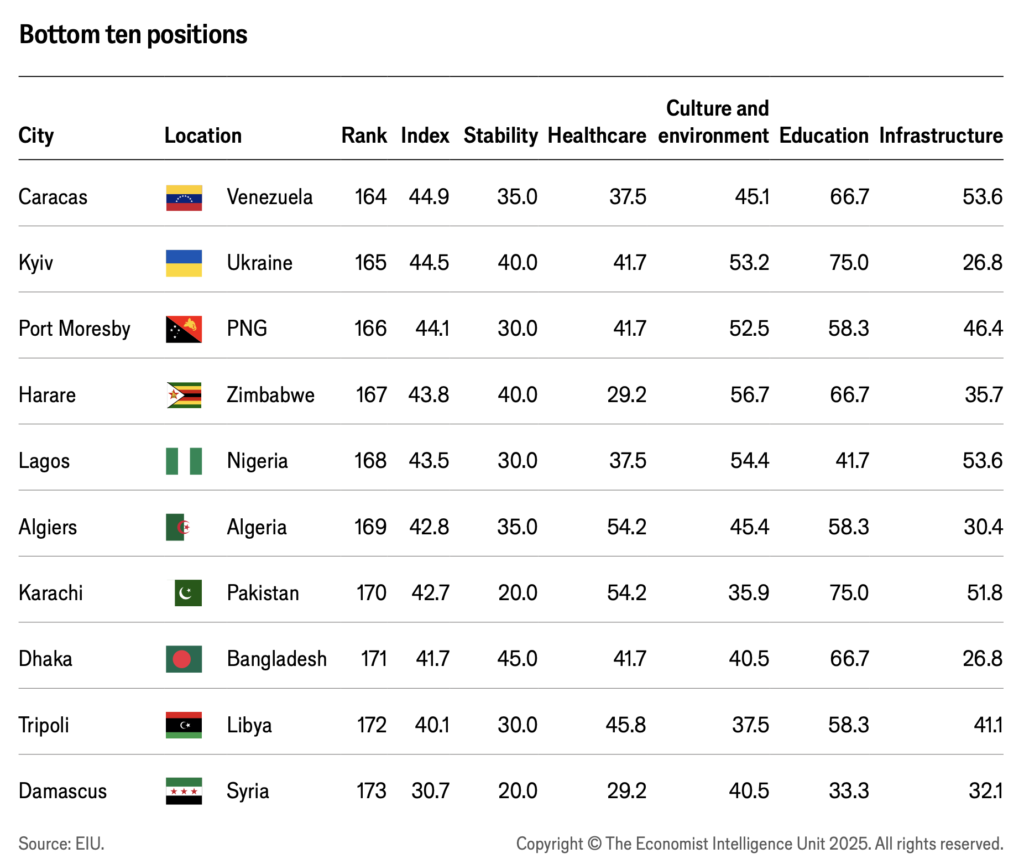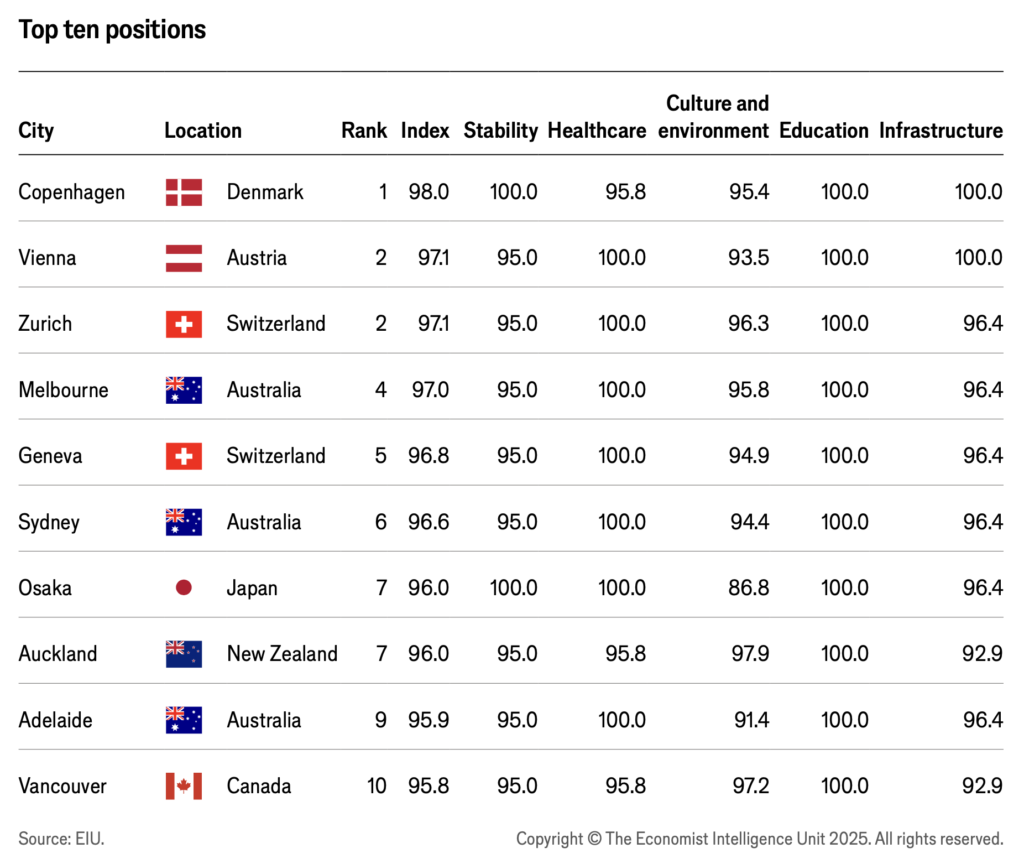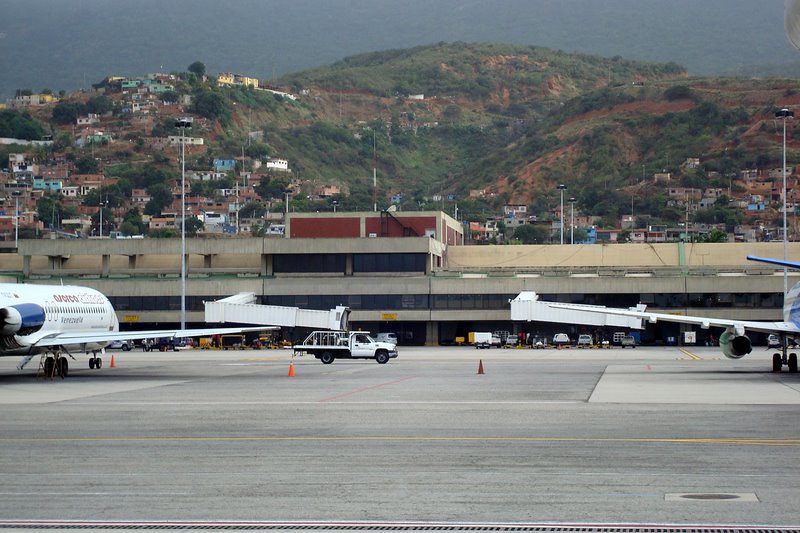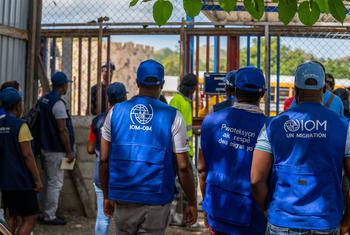Map of the most and least “livable” cities according to the British magazine The Economist for 2025. Image: Economist Intelligence Unit.
Guacamaya, May 27, 2025. The Venezuelan capital remains at the bottom of the “Global Livability Index” in 2025, ranking 164th out of 173 cities worldwide.
Caracas is only above some cities in conflict-ridden countries, such as Damascus, Tripoli, and Kyiv, as well as metropolises like Lagos, Karachi, and Dhaka, in addition to Port Moresby, Harare, and Algiers. It is the only city in the continent to appear among the worst 10.
The index is produced by the Economist Intelligence Unit, owned by the British magazine The Economist. Among other uses, it serves as a guide for companies looking to send employees overseas. With a lower index score, employees should receive better compensation and relocation packages.

The main issues for the Venezuelan capital are “stability” (35) and “healthcare” (37.5). The first refers to problems such as prevalent crime, wars, and unrest. The second considers the availability and quality of both private and public healthcare, along with general health indicators from the World Bank.
Caracas also scores low in “culture and environment” (45.1). This broader category includes perceptions of corruption and censorship, as well as access to sports, cultural activities, and dining, among other factors. In infrastructure, Caracas has a mediocre score (53.6).
Where Caracas scores highest is in “education” (66.7), which evaluates the availability and quality of private schools and universities, along with general World Bank indicators.
The 10 most “livable” cities are Copenhagen, Vienna, Zurich, Melbourne, Geneva, Sydney, Osaka, Auckland, Adelaide, and Vancouver, in that order. The highest-ranked cities are mainly concentrated in Western Europe.
For reference, the top cities do score 100 out of 100 in several categories, while none score below 20.








